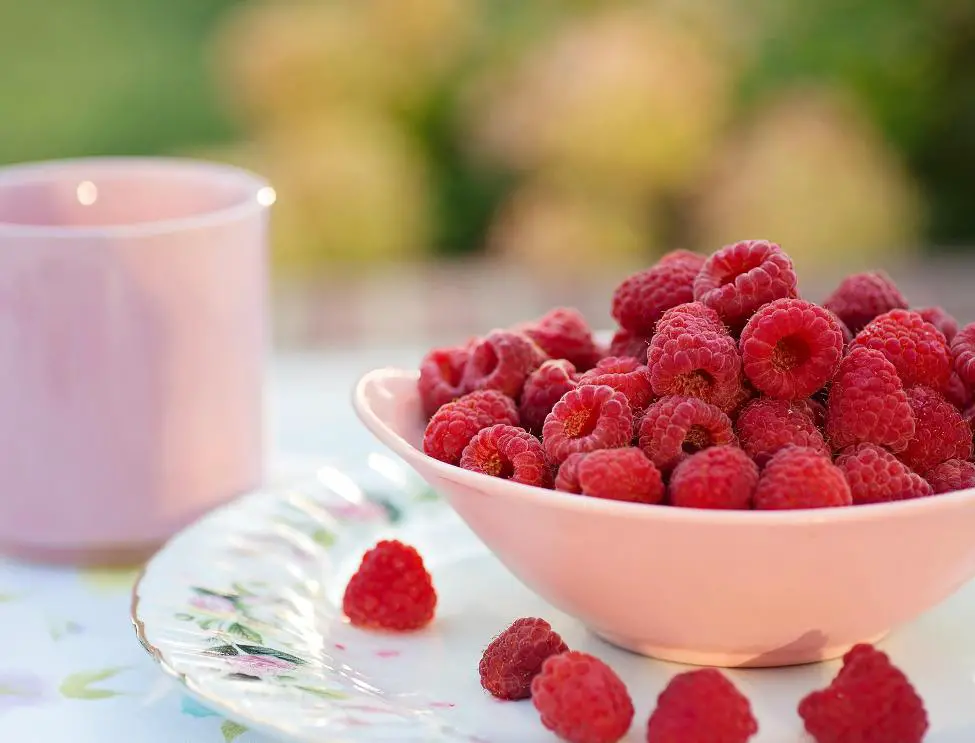If you’re a berry enthusiast, you might have considered growing raspberries in your garden. Raspberries not only delight the taste buds but also bring a burst of vibrant red to your outdoor space. To boost the health and productivity of your raspberry patch, companion planting is the way to go. In this article, we’ll explore the best companion plants for raspberries in your vegetable garden, creating a harmonious and fruitful environment for your beloved berries.
The Harmony of Companion Planting in Your Home Garden
Companion planting is more than just a gardening trend; it’s a strategic way to create a balanced and thriving garden ecosystem. By choosing the right companions for your raspberries, you can enhance their growth, deter pests, and create a visually appealing garden.
Raspberries’ Ideal Companions: The Basics
Raspberries, like all plants, have specific needs and preferences. Here are some key considerations when choosing companions:
- Sunlight Lovers: Raspberries thrive in full sunlight, so companions should also enjoy and benefit from ample sunlight.
- Well-Drained Soil: Raspberries prefer well-drained soil. Companion plants should not compete for nutrients or water.
- Pest-Repelling Partners: Choose companion plants that can help deter pests known to affect raspberries.
The Perfect Plant Partners for Raspberries
Now, let’s explore the ideal companions for your raspberries:
- Garlic and Chives: Planting garlic and chives around your raspberries can help deter pests like aphids and Japanese beetles. These aromatic alliums add a layer of protection while adding flavor to your garden.
- Lupines: Lupines are nitrogen-fixing plants that improve soil quality by adding essential nutrients. This is beneficial for raspberries, as they appreciate nutrient-rich soil.
- Nasturtiums: These colorful, edible flowers not only add beauty to your garden but also serve a practical purpose. Nasturtiums can deter pests like aphids, protecting your raspberries.
The Beauty of Wildflowers: Aesthetics Meets Functionality
Consider planting wildflowers near your raspberries for both visual appeal and practical benefits:
- Pollinator Attraction: Wildflowers attract beneficial pollinators like bees, which can improve raspberry pollination and yields.
- Natural Pest Control: Some wildflowers can deter pests, such as aphids and mites, that may harm your raspberries.
Herbs for a Berrylicious Garden: Mint and Basil
Herbs can play a valuable role in your raspberry patch. Consider planting mint and basil:
- Mint: Mint can help deter insect pests while adding a delightful aroma to your garden. Be mindful to plant it in containers, as mint can be invasive.
- Basil: Basil not only enhances the flavor of raspberries but also deters mosquitoes and other pests.
Companion Planting Tips: Guidelines for Success in Your Aussie Garden
To make the most of companion planting with your raspberries, consider these practical tips:
- Proper Spacing: Allow adequate space between your raspberry plants and companion plants to prevent overcrowding.
- Mulch: Apply mulch around your raspberries to help retain moisture and control weeds. Mulching also helps maintain a cool root environment.
- Rotate Crops: Change the location of your raspberries and companion plants each season to prevent soil depletion and pest build-up.
Growing delicious and nutritious raspberries in your garden can be even more rewarding when you harness the power of companion planting. By understanding which plants work best alongside your raspberries, you can foster a thriving garden ecosystem that benefits all your crops. So, gather your raspberries and their plant pals, and watch your garden flourish with flavor, diversity, and protection from pesky pests.
